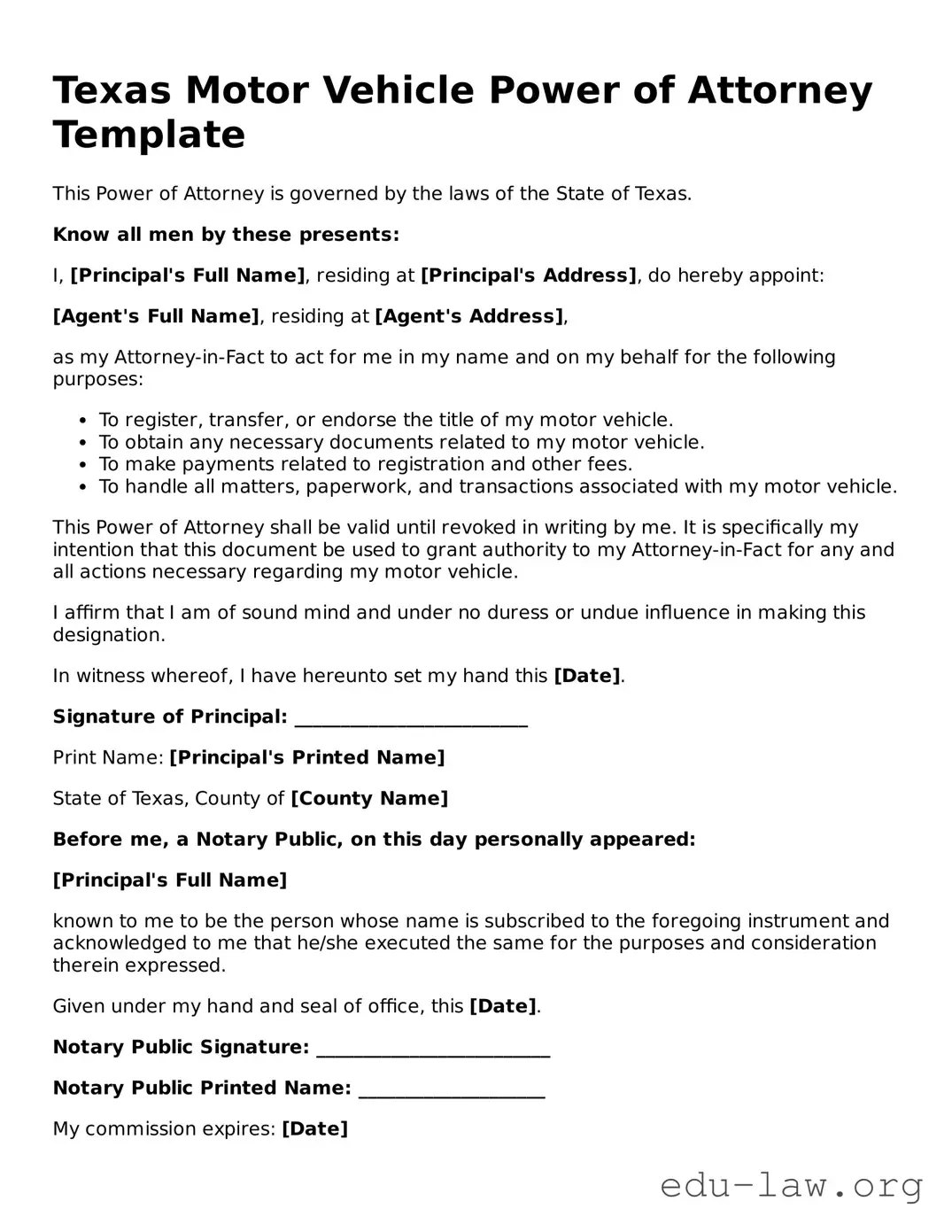Texas Motor Vehicle Power of Attorney Template
This Power of Attorney is governed by the laws of the State of Texas.
Know all men by these presents:
I, [Principal's Full Name], residing at [Principal's Address], do hereby appoint:
[Agent's Full Name], residing at [Agent's Address],
as my Attorney-in-Fact to act for me in my name and on my behalf for the following purposes:
- To register, transfer, or endorse the title of my motor vehicle.
- To obtain any necessary documents related to my motor vehicle.
- To make payments related to registration and other fees.
- To handle all matters, paperwork, and transactions associated with my motor vehicle.
This Power of Attorney shall be valid until revoked in writing by me. It is specifically my intention that this document be used to grant authority to my Attorney-in-Fact for any and all actions necessary regarding my motor vehicle.
I affirm that I am of sound mind and under no duress or undue influence in making this designation.
In witness whereof, I have hereunto set my hand this [Date].
Signature of Principal: _________________________
Print Name: [Principal's Printed Name]
State of Texas, County of [County Name]
Before me, a Notary Public, on this day personally appeared:
[Principal's Full Name]
known to me to be the person whose name is subscribed to the foregoing instrument and acknowledged to me that he/she executed the same for the purposes and consideration therein expressed.
Given under my hand and seal of office, this [Date].
Notary Public Signature: _________________________
Notary Public Printed Name: ____________________
My commission expires: [Date]
